Leading sustainable innovative development for inclusive growth in the field of Telecommunication and molding the students to become world leaders with excellence in technical domain.
To impart Technical education, not limiting to classroom environment, but more of application oriented with practical interpretations.
To infuse a sense of self motivation and urge to learn and experience new emerging trends in Telecommunication Engineering
Program Outcomes are statements that describe what students are expected to know and be able to do upon graduating from the program. These relate to the skills, knowledge, attitude and be- haviour that students acquire through the program. On successful completion of B.E. in Electronics and Telecommunication Engineering, graduating students/graduates will be able to:
| PO1 | Engineering Knowledge | Apply knowledge of mathematics, natural science, computing, engineering fundamentals and an engineering specialization as specified in WK1 to WK4 respectively to develop to the solutionof complex engineering problems. |
| PO2 | Problem Analysis | Identify, formulate, review research literature and analyze complex engineering problems reaching substantiated conclusions with consideration for sustainable development.(WK1 to WK4) |
| PO3 | Design / Development of Solutions | Design creative solutions for complex engineering problems and design/develop systems/components/processes to meet identified needs with consideration for the public health and safety, whole-life cost, net zero carbon, culture, society andenvironment as required. (WK5) |
| PO4 | Conduct Investigations of Complex Problems | Conduct investigations of complex engineering problems using research-based knowledge including design of experiments, modelling, analysis & interpretation of data to provide validconclusions. (WK8). |
| PO5 | Engineering Tool Usage | Create, select and apply appropriate techniques, resources and modern engineering & IT tools, including prediction and modelling recognizing their limitations to solve complexengineering problems. (WK2 and WK6) |
| PO6 | The Engineer and the World | Analyze and evaluate societal and environmental aspects while solving complex engineering problems for its impact on sustainability with reference to economy, health, safety, legalframework, culture and environment. (WK1, WK5, and WK7). |
| PO7 | Ethics | Apply ethical principles and commit to professional ethics, human values, diversity and inclusion; adhere to national &international laws. (WK9) |
| PO8 | Individual andCollaborative Team work | Function effectively as an individual, and as a member or leader in diverse/multi-disciplinary teams. |
| PO9 | Communication | Communicate effectively and inclusively within the engineering community and society at large, such as being able to comprehend and write effective reports and design documentation, make effective presentations considering cultural, language, and learning differences |
| PO10 | Project Management and Finance | Apply knowledge and understanding of engineering management principles and economic decision-making and apply these to ones own work, as a member and leader in a team, and to manage projects and in multidisciplinaryenvironments. |
| PO11 | Life-Long Learning | Recognize the need for, and have the preparation and ability for i) independent and life-long learning ii) adaptability to new and emerging technologies and iii) critical thinking in the broadest context of technological change. (WK8) |
| WK1 | A systematic, theory-based understanding of the natural sciences applicable to the discipline and awareness of relevant social sciences. |
| WK2 | Conceptually-based mathematics, numerical analysis, data analysis, statistics and formal aspects of computer and information science to support detailed analysis and modelling applicable to the discipline. |
| WK3 | A systematic, theory-based formulation of engineering fundamentals required in the engineering discipline. |
| WK4 | Engineering specialist knowledge that provides theoretical frameworks and bodies of knowledge for the accepted practice areas in the engineering discipline; much is at the forefront of the discipline. |
| WK5 | Knowledge, including efficient resource use, environmental impacts, whole-life cost, re-use of resources, net zero carbon, and similar concepts, that supports engineering design and operations in a practice area. |
| WK6 | Knowledge of engineering practice (technology) in the practice areas in the engineering discipline. |
| WK7 | Knowledge of the role of engineering in society and identified issues in engineering practice in the discipline, such as the professional responsibility of an engineer to public safety and sustainable development. |
| WK8 | Engagement with selected knowledge in the current research literature of the discipline, awareness of the power of critical thinking and creative approaches to evaluate emerging issues. |
| WK9 | Ethics, inclusive behavior and conduct. Knowledge of professional ethics, responsibilities, and norms of engineering practice. Awareness of the need for diversity by reason of ethnicity, gender, age, physical ability etc. with mutual understanding and respect, and of inclusive attitudes. |
To become a role model and source of knowledge to peers and the juniors in the society.
To understand the current existing technologies and provide the most efficient solution to the problem.
To excel in the technical domain thereby increasing their knowledge and symbiotically helping the organization they will work in.
Ability to handle complex IT tools for simulation to produce the best outcomes.
Not to confine the knowledge themselves but to share and spread in the society.
Analyze the knowledge of product design, electronic circuits, embedded & communication systems, Microcontroller, control systems and signal processing to solve Engineering/societal issues
Implement ideas for new concept, design and verify using skill to realize the outcomes of ideas implemented
Apply logical skills in programming to attain results and its outcome
Build the team to manage the project and experiment it with the conceptual support to Contribute to self and the society

Ph.D.* M.Tech.(CN)
MESSAGE FROM HOD DESK
Greetings and welcome to the department of Electronics & Telecommunication Engineering at ISBM College of Engineering, Pune. The department was established with the inception of the institute in the year 2010. The department aims of providing leadership in the field of Electronics & Telecommunication Engineering and pioneering in research with latest Technology.
The department strives to train and empower our students who will make the world a better place by making use of engineering principles, techniques and systems. To that end, considerable initiative have been taken to establish good laboratories in the areas of Electronics, Communication, Microwave, Digital Signal Processing, Microcomputer, VLSI and Embedded System Design with required hardware and simulation softwares. Along with these, we have an exclusive “Innovation & Skill Development Centre” for the students and staff to develop and implement their ideas in the advanced fields like IoT(Internet of Things), Artificial Intelligence, Machine Learning, Data science and Robotics. Also, the department has very good connect with industries as well.
The department has a well-qualified and experienced staff that is always on their toes. The faculties have excellent academic records and are highly regarded amongst students. We motivate our students to dream big and guarantee that we include the right spirit and the necessary talent to realize their objective. We also continuously strive to instill ethical values in our wards so that they become responsible citizen of tomorrow.
The Institute ensures that our students would be asset to the organization through their technical and managerial capabilities. We at ISBM COEP, aim to actively assist students in attracting and identifying the individuals best suited to their needs and developing a successful recruitment relationship right from the beginning. That are the above reason that we are now known as among of the Top Engineering Colleges of Pune, Maharashtra.
The activities like Expert Lectures, Site Visits, Technical Events, Sports and Cultural Events, Soft Skills etc widens their horizon and avert them from being monotonous with academics. To conclude, the department catalyzes and assures a very healthy, amicable but a competitive ambience for our future engineer.


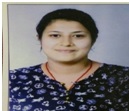

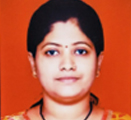
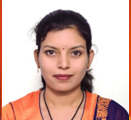
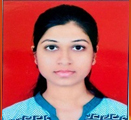
| Sr. No. | Department | Class | Name of student | SGPA | Rank | Photo |
|---|---|---|---|---|---|---|
| 1 | E&TC | SE | SHRUTI HIRAVE | 8.91 | 1st |
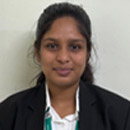
|
| 2 | E&TC | TE | SPURTI DESAI | 9.33 | 1st |
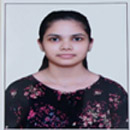
|
| 3 | E&TC | BE | VAISHNAVI SHINDE | 9.63 | 1st |

|